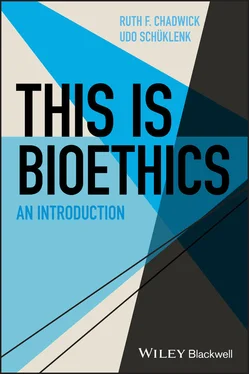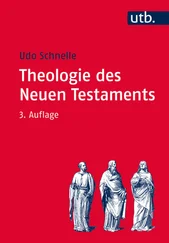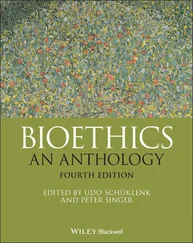3.3 Organizations and Journals
3.14 More internationally focused organizations such as the International Association of Bioethics 30 (IAB) host international networks of scholars with shared research interests. Specialized networks such as the International Network on Feminist Approaches to Bioethics 31 (FAB) also exist. The IAB 32 and FAB 33 have official academic journals publishing high‐quality peer reviewed bioethics content with an international flavor.
3.15 As is to be expected in a growing academic discipline, there is a large number of bioethics journals in existence, in English language as well as in any number of other languages. In case you would like to find out more about at least some of the journals in the field, you might find the journal listings on this website 34 as good a starting point for your own investigations as any. Looking over the tables of content of current issues gives you a good idea of the kinds of topics that are of concern to bioethicists today.
3.16 Among bioethicists there has been a fair amount of debate about their proper role when it comes to public policy issues, especially regarding whether they should focus on elucidating issues or providing answers. Bioethicists more often than not are working on topics with significant public policy import, we mentioned already the morality of abortion, euthanasia, justice in the allocation of scarce resources, governance of emerging technologies, or the issue of ethically defensible triage criteria in COVID19 like pandemics, as well as other policy matters. Some bioethicists hold the view that bioethicists should refrain from providing any kind of public policy advice. The rationale here is typically that in liberal democracies public policy on any subject matter is the result of processes involving democratic consensus finding. Bioethical analysis typically doesn’t lend itself to the negotiation of trade‐offs between the negotiating parties. Instead bioethical analysis provides critical normative reflection on the issue of concern and then offers a reasoned conclusion with regard to what we ought to do (or what we ought not to do). It does this using mostly normative impartialist concepts that will give weight to particular values. Say, a utilitarian analysis will be single‐mindedly focused on outcomes and aim to evaluate these outcomes through the lens of its maximization‐principle. In liberal democracies legislators are more likely to take consequences as much into consideration as individual rights and any number of other societal values. Bioethicists then are well‐placed to reflect on the meaning of such values to the problem at hand, but they are arguably not the right party to draw up policy proposals reflecting a societal consensus on any bioethics subject matter.
3.17 Governments in many countries have set up national bioethics advisory commissions or councils the job of which is to address bioethical issues that are of current policy concern. Their remits vary significantly, some are free to address issues the commission or council members deem important, others respond to government requests to investigate particular issues. In the United States, Japan and Germany, to name but a few, such commissions have existed for many years 35 . In the United Kingdom there is no national government‐appointed bioethics committee but the Nuffield Council on Bioethics 36 fulfils an analogous role. There have also been commissions appointed for particular purposes at different times. In the United States the members are presidential appointments 37 and so do probably reflect to some extent the religious or other convictions of the president of the day. The German Ethics Council 38 was established by federal legislation.
3.18 Bioethicists also work in advisory or policy making bodies of medical associations and statutory bodies in the health care professions. For instance, the World Medical Association has created its own medical ethics committee 39 . Under its guidance the organization has produced a whole host of ethical guidance documents 40 as well as educational resources 41 . It is worth noting that the guidance documents produced by the World Medical Association typically do not provide ethical justification, rather the ethical guidelines produced by the organization take their authoritative strength from the standing of the organization itself. The World Medical Association has obviously some claim to represent, as an international umbrella organization, the world’s doctors.
3.19 CIOMS, the Council for International Organizations of Medical Sciences is the publisher of its infrequently updated International Ethical Guidelines for Health‐ related Research Involving Humans 42 (CIOMS 2016). You will find in this document research ethical guidelines – 25 of them, no less – ranging from traditional content such as informed consent, standards of care in a trial, conflicts of interest, content on particular participant groups such as children and women, to topics including the social value of research, the collection, storage and use of data, or public accountability of research. As with the documents issued by the World Medical Association, most of the CIOMS guidelines also contain no ethical justification. A draw‐back of such a publishing strategy is that because it is unclear why particular guidance is issued, it is difficult to determine for a curious reader whether the advice is worth heeding or whether it can safely be ignored. On the other hand, the CIOMS guidelines have become very long and detailed. If the authors of this document had chosen to provide substantive justification for their guidance, they would have produced a document justifiably called an ethics document, but it may have turned out to be unwieldy due to its length.
3.20 Increasingly bioethicists are becoming involved in the development of ethical guidance documents that probably come closer to being regulatory or policy documents. A good example of this are the binding research ethics guidelines 43 produced by the Canadian federal research funding agencies for health research, the natural sciences and engineering as well as the humanities and social sciences.
3.21 These guidelines are binding regulatory documents for researchers funded by these agencies, not merely expressions of good intentions or an ethics wish‐list of a kind.
3.22 You might want to investigate in what roles bioethicists function in your national medical association, research funding agencies and the like.
3.23 In the next section we will introduce some common patterns of argument that you will come across in bioethics and we will demonstrate where, and how they fall short. The kinds of common fallacious arguments that you can find in bioethics are arguments flagged prominently in any number of critical thinking or rhetoric textbooks. This section is not meant to replace these textbooks (e.g. Hunter 2009; Vaughn 2010). Its objective is to red‐flag arguments that you should be concerned about when you come across them in bioethics related articles, whether in academic journals or in the news media.
3.5 Common Arguments in Bioethics
3.24 Some arguments are treated as if they were ‘knock‐down’ arguments. So what is a ‘knock‐down’ argument? In simple terms, it is an argument that is regarded as decisive. Nathan Ballantyne has examined definitions of knock‐down arguments and suggests that they are arguments that ought to bring about agreement, were everyone to understand them, while lacking ‘defeaters’ for thinking they understand ( Ballantyne 2013 44 ). In other words, they are not aware of good reasons for rejecting the argument. There is a view, however, that there are no knockdown arguments in philosophy – everything is open to question ‐ and thus in bioethics in so far as it is a sub‐branch of philosophy, but certain arguments are used as if they were knockdown arguments.
Читать дальше












